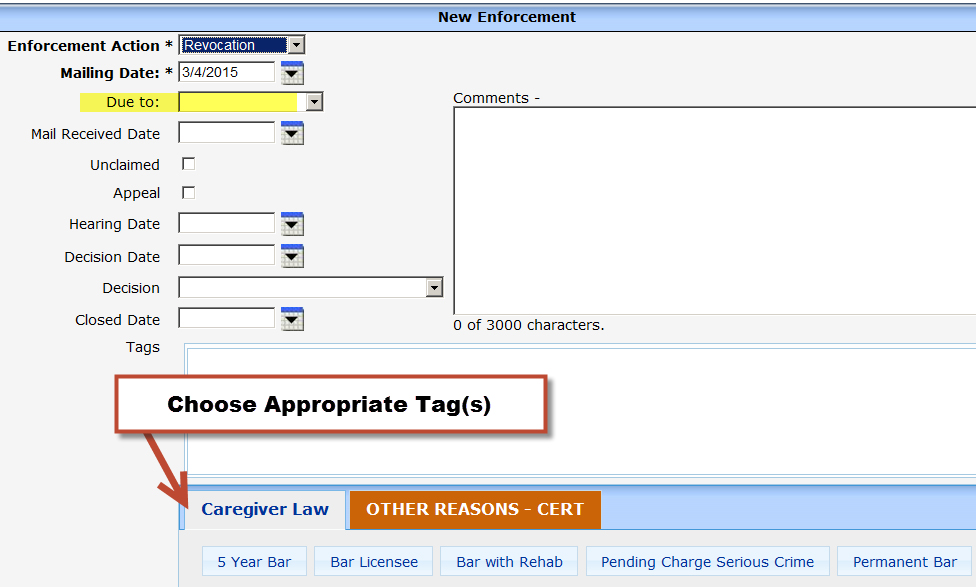
Wisconsin Department of Children and Families - Division of Early Care and Education
Bureau of Early Care Regulation
Child Care Certification Policy Manual
The Department’s CBU will issue the final background check eligibility determination notices.
A detailed notice outlining the basis for the ineligible determination is drafted by the CBU and sent to the individual. A system-generated general notice is sent to the applicant, licensee or operator. If the individual receives a final ineligibility determination, the person may not reside or work in the child care program.
In accordance with Wis. Stats. § 48.686(4s), an individual who is the subject of the department's background check determination may appeal the department's final eligibility determination.
Only the person who is the subject of the department's determination may appeal the department's decision. The appeal and reconsideration process contained in the statute is the exclusive method for disputing a background check determination issued by the department.
If an individual received preliminary approval to begin residing or working under supervision but is later denied in the final determination, the individual may not continue to reside or work under supervision pending the appeal.
While the CBU is responsible for issuing background check eligibility notices, the certification agency remains responsible for issuing enforcements related to background check results. All certification agency enforcement notices must include appeal rights; however, the agency could file a summary judgment motion to dismiss for appeals based solely on the department’s background check eligibility determination. Certification agency attorneys and county corporation counsel may contact DCF’s Office of Legal Counsel for technical assistance, if needed (608-422-7047).
If certification is denied / revoked due to the applicant’s / operator’s barred offenses on the serious crimes table, the information will become part of future background check results. The denial will be displayed on the DHS (IBIS) letter if a background check is conducted on the applicant / operator in the future. If the barred offense is due to a household member, the coding in WISCCRS should be ‘DCF 13 –Other’ to ensure the information is not sent to the IBIS for the applicant/operator.
If the certification worker modifies the applicant / operator’s status from a sanction related to a barred offense to a non-barred sanction, the IBIS will automatically be updated to reflect this change. For example, if the worker made an error and/or the agency rescinded the ‘Permanent Bar’ revocation and modified it to a non-barred sanction, the IBIS will also be updated.
In cases when an applicant is denied due to a ‘Bar with Rehabilitation’ offense and the barred individual is subsequently granted Rehabilitation Review Approval, the certification worker does not modify the previous denial. Instead, the applicant must reapply for certification and a new application is entered into WISCCRS. In this way, the IBIS report will still indicate the individual is known to the Rehabilitation Review process and the previous denied application history remains in WISCCRS.
See Section 6.1 regarding release of information when a potential employer calls the certification agency to inquire about the IBIS results. Uploading the sanction letter in WISCCRS is critical to ensure the operator’s record will indicate whether the sanction/enforcement (as indicated in IBIS) is due to the applicant / operator or household member.
Use the Enforcements Module to document the revocation and to signify who the Background Check Law-related enforcement is due to.

6.1 IBIS Results for Sanctions Related to Background Check Law
This page last updated 01/2020